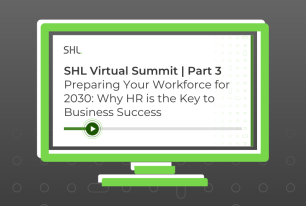What If Culture Didn’t Eat Strategy for Breakfast?
The pandemic offers a unique opportunity for us to purposefully design and re-set our organizational cultures.
Share
We’ve all heard it before – ‘it’s just the way things are done around here’, and ‘we would make real progress if we didn’t have this culture’. Peter Drucker’s now famous saying ‘culture eats strategy for breakfast’ has offered a very reasonable explanation for change initiatives failing or transformation programs stalling.
What if culture didn’t eat strategy for breakfast? And instead, culture and strategy worked side by side to power sustainable organizations?
Strategy is certainly something leaders are well accustomed to talk about and purposefully design. Yet, how many are actively discussing culture, the often more elusive lever organizations need to pull to deliver sustainable outcomes.
Culture Is All around Us
The challenge with culture is that it is just there, all around us. Existing leaders, managers, and employees are often so ingrained in cultural ways of working – interacting, sharing information, making decisions – that it can be a very challenging and time-consuming feature to proactively change. Culture can create very positive outcomes but also serve to maintain or perpetuate a norm – the ‘type’ of person we hire, or who gets promoted, can become homogenous and foster toxicity if the balance goes unchecked.
The pandemic offers a unique opportunity for us to purposefully design and re-set our organizational cultures. Across the globe businesses have been forced to reinvent ways of working, to discover new ways to manufacture goods, to manage logistics, to enable customers access to stores, and to connect colleagues working from home rather than at office sites.
Existing leaders, managers, and employees are often so ingrained in cultural ways of working that it can be a very challenging feature to proactively change.
For Better and for Worse
We’ve been through tough times and undoubtedly there will be further disruption and challenge to come. For better and for worse, leaders and culture are inextricably linked. All eyes have been on those in leadership roles throughout 2020. A crisis management situation uncovers the capabilities of a true leader. Across governments, large corporations, and independent traders, we have watched different leadership styles and approaches come to the fore – success being measured through quick decision-making to contain the virus and keep people safe, and bold strategies to enable businesses to survive as traditional channels and markets flounder.
Now, it’s all about re-shaping culture. Determining the ‘new way things are done around here’. Already we’ve seen the likes of Twitter make commitments to long-term options to work from home, and many have followed suit, providing flexible working options for employees.
Tip of the Iceberg
Continuing remote work is just the tip of the iceberg. There is a fantastic opportunity for firms to truly re-set culture in a variety of ways:
- A bustling job market
In the UK alone, unemployment rates have soared to c. 2.7 million as we officially enter a recession. This means your company culture will be experienced inside and out. Proactively think about the culture you want to communicate with potential employees because it can cause lasting damage if you get it wrong. In today’s technology-driven age, there really is no excuse for a poor candidate experience - The change curve we are experiencing is rapid
The demand for new skills and new roles is sky-high. Remember that this is a change we’re encountering together. With a flooded employment marketplace there will be many people embarking on career transitions. Are you building a culture to encourage individuals to embrace change, re-skill, and reinvent their own careers? Hold an open-minded attitude and prepare to invest in those with the potential to learn and who might break the ‘cultural mold’. - The balance of work and private life has never felt so intense
Considering what’s possible at the longer-term from a flexible working perspective, is one place to start, but are you also examining how your culture will facilitate support for families heading back to school and those feeling financial pressures? - Transparency and equity have elevated in urgency for action
Now is a very good time to review how individuals progress within the organization, having the decision-making and evaluation processes in place to make sure you are building a truly diverse and inclusive workforce.
Are you building a culture to encourage individuals to embrace change, re-skill, and reinvent their own careers?
The Role We Play
Cultural change can start small and rapidly gain momentum. Leaders have a huge responsibility and opportunity to spark change. Behavior and responses which might feel insignificant – e.g. acknowledging and encouraging action following a difficult email from a customer; ignoring unconscious biases and prejudices to objectively evaluate existing employees for new roles and opportunities; bringing external thoughts and perspectives into the business – are all noticed and often replicated by others.
Personally, I have felt motivated by examples of considered behavioral change, e.g. the groups emerging focused on supporting students impacted by education and exam disruption (i.e. Class of 2020); the organizations working together to enable broader talent pools of employees impacted through re-structure, and the companies showing openness to support individuals embarking on new chapters in their careers.
Listening, acknowledging gaps, recognizing contributions (not just results), showing empathy and humility (we all get things wrong), diminishing presenteeism and demonstrating trust (it will pay back, and fast), and empowering individuals to make choices and try new things, are small steps that make a big, and lasting, difference.
As we move into the final quarter of 2020 and focus shifts to 2021 planning – budgets, workforces, strategic partnerships, opportunities for investment – make sure you seize the opportunity to ensure your culture is positioned to lead to long-term, sustainable impact. For breakfast, lunch, and dinner.
Contact us to learn more about how SHL can help you purposefully design your organizational culture.









